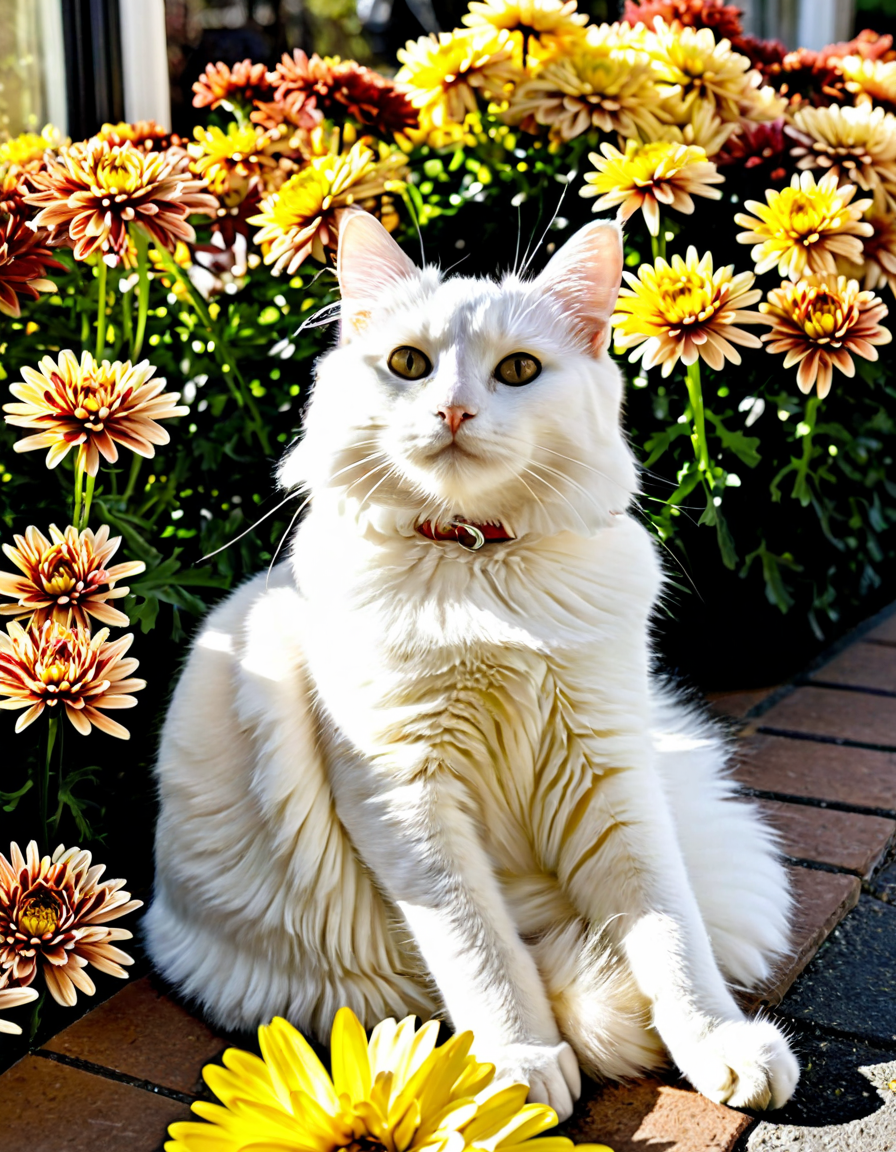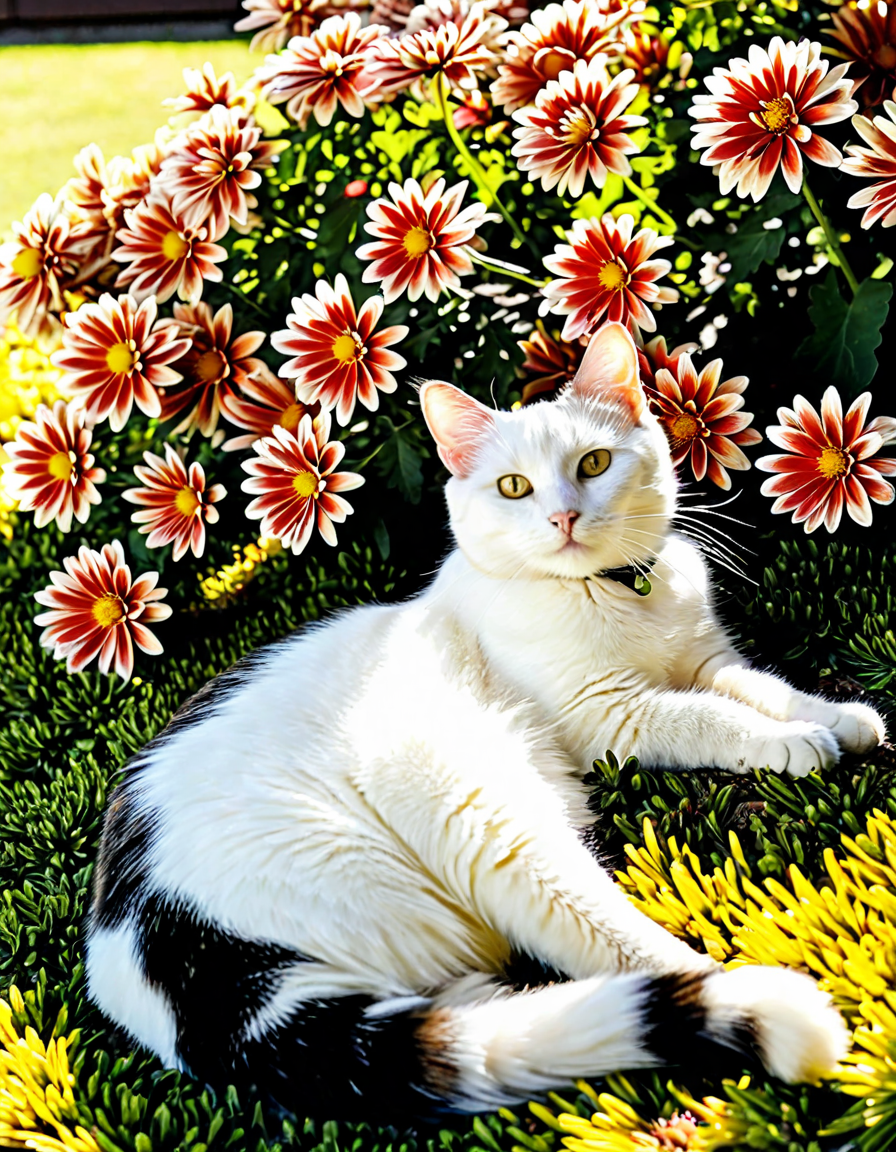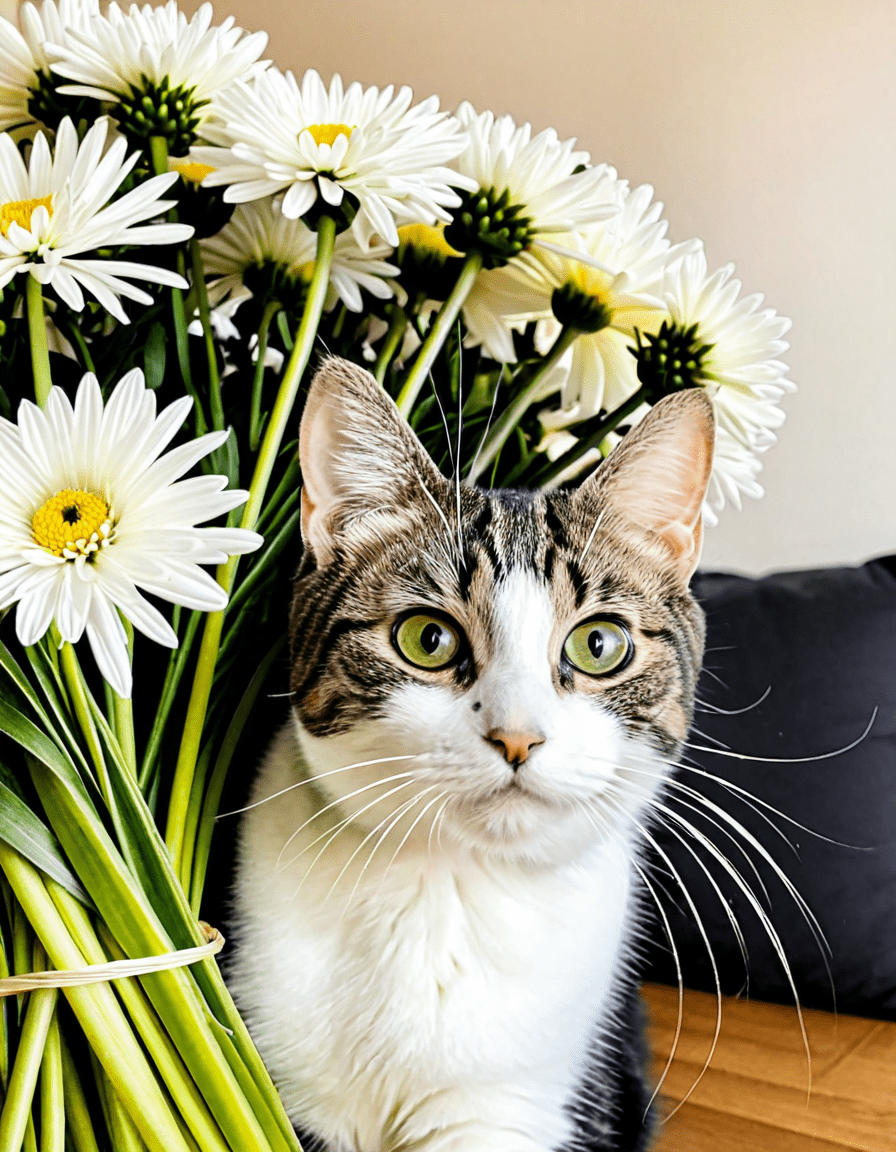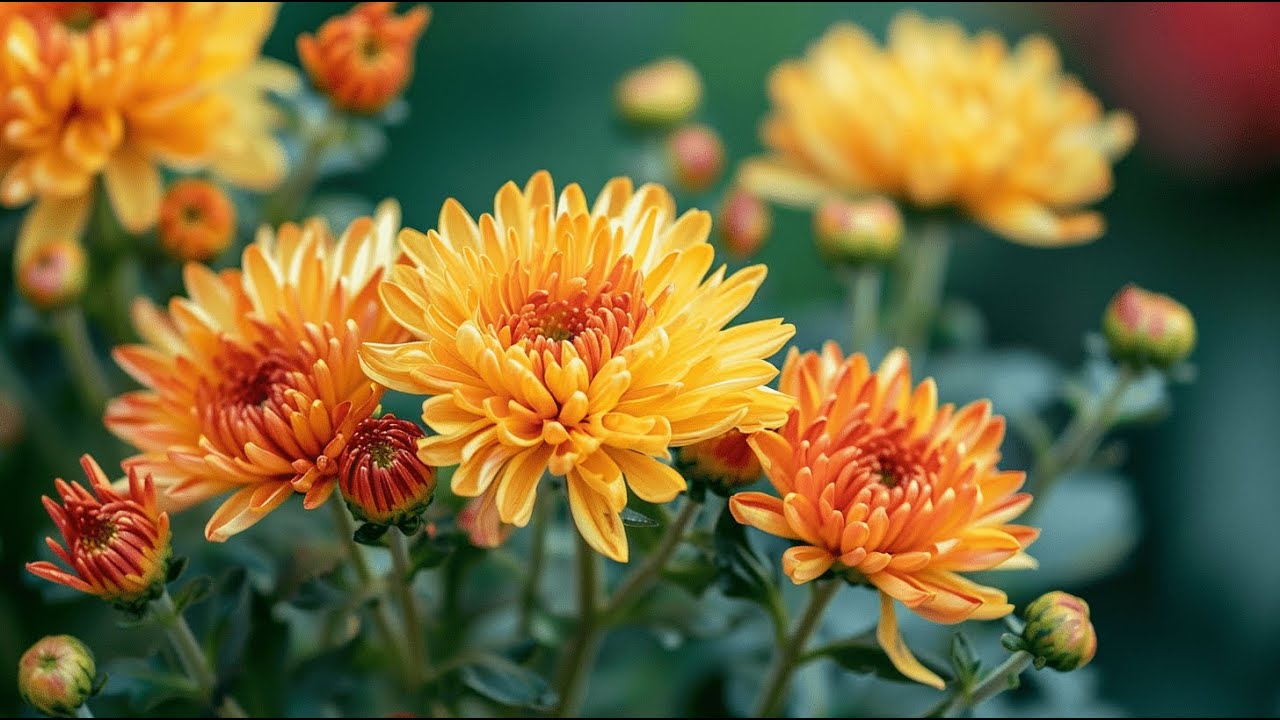If you’re a cat owner, you might be wondering, are mums poisonous to cats? With vibrant blooms and a reputation for being fall staples, chrysanthemums—or “mums” for short—are beloved in gardens and homes alike. But what about our feline friends and these colorful flowers? In this article, we’ll dig into everything you need to know about mums, their effects on cats, and what you can plant instead to keep your kitty safe.
Understanding Mums and Their Varieties
Mums come in a myriad of shapes, sizes, and colors. You’ll find them ranging from deep purples and bright yellows to soft pinks and whites. Popular for their lush petals and cheerful hues, these blooms are often used for fall decorations, providing a burst of color just as the leaves start to drop. However, their beauty conceals a darker truth when it comes to pet safety.
The most common types of mums include:
While these flowers might beautify your backyard or brighten up your living room, watch out! If you’ve got cats roaming about, it’s crucial to understand how these flowers could affect them.

The Toxicity of Mums: Are Mums Poisonous to Cats?
Yes, mums are indeed poisonous to cats. According to veterinary sources such as the ASPCA, ingestion of chrysanthemums can lead to some troubling health issues for your feline companion. Mums contain substances called pyrethrins, which are toxic compounds that can cause adverse effects.
Symptoms of Mum Poisoning in Cats
If your cat nibbles on any part of a mum, keep an eye out for these symptoms:
For instance, a cat owner named Sarah shared her experience after her curious Tabby, Whiskers, munched on some mums she had placed on the living room table. Within hours, Whiskers was vomiting and refused to eat. A quick trip to the vet confirmed that the mums were the culprits.
If you suspect your cat has ingested mums, contact your veterinarian immediately.
Are Sunflowers Toxic to Cats? A Comparison
Now that we’ve established that mums are poisonous to cats, it’s time to compare them with another garden favorite: sunflowers. The bright, cheerful sunflowers often brighten up our yards, but their safety for pets raises some questions too. Fortunately, sunflowers are not considered toxic to cats.
However, let’s break this down:
So, while sunflowers don’t pose a significant risk, they can still cause hiccups in your cat’s digestive system. Always monitor your cat’s behavior if they explore your garden munching on goodies like sunflower seeds.

Safe Alternatives to Mums for Cat Owners
If you’re an avid gardener but want to keep your pet safe, there are plenty of beautiful, pet-friendly flowers to choose from:
Here are some excellent alternatives to consider:
Florist Emily Collins emphasizes the importance of choosing non-toxic plants, stating, “Pet safety should always be a priority in choosing garden plants. There are so many beautiful options!” By substituting these alternatives, you can create an inviting environment without compromising your furry friend’s health.
Practical Tips for Keeping Cats Safe Around Flowers
Keeping your cat safe doesn’t have to be complicated. Here are some straightforward practices to ensure their well-being around potentially hazardous plants:
By implementing these tips, you create a safer environment while still enjoying the beauty of flowers in your life.
Expert Opinions: What Do Veterinarians Say?
Veterinarians emphasize that pet owners need to be aware of the toxic nature of certain plants. Dr. Emily Perez, a local vet, highlighted that “educating pet owners about plants that are dangerous to pets is critical. It’s not just about keeping them away from harmful substances; it’s about engaging with our pets while ensuring their safety.”
Recent veterinary conferences have pointed to the growing importance of educating pet owners regarding plant toxicity. The American Veterinary Medical Association (AVMA) recently pushed for more awareness initiatives around common household plants that could endanger our pets.
The Role of Education in Pet Safety: Are Owners Aware?
Survey data indicates that many pet owners are unaware of the dangers lurking in their backyards. A recent study showed a significant percentage of cat owners could not identify even a few toxic plants. This lack of knowledge can profoundly impact your pet’s health, making it essential for owners to educate themselves continually.
Studies reveal numerous misconceptions about popular garden plants. For instance, many might think roses are hazardous for cats, which is not actually the case compared to plants like mums or aloe vera. Regularly educating ourselves can lead to better decision-making in our gardening choices.
Wrapping It Up
Navigating the path of pet care can often feel overwhelming, especially when it comes to ensuring our furry friends’ safety around household plants. Understanding which flowers are safe and which are toxic is crucial for every cat owner. As we’ve seen, mums are indeed poisonous to cats, and being aware of their effects is the first step in protecting our beloved companions.
By exploring the many safe alternatives out there and taking proactive measures, you create beautiful environments that not only enhance your living space but also ensure your cat can roam freely without worry. Remember, knowledge is power, and keeping yourself educated is key to a harmonious life for both your plants and your pets.
Are Mums Poisonous to Cats?
When it comes to pet safety, many cat owners often wonder if their houseplants could pose a threat. One such plant in question is the lovely chrysanthemum, commonly known as mums. Let’s dive in and uncover whether mums are poisonous to cats and arm yourself with some fun floral trivia along the way!
Mums and Cat Safety
So, are mums poisonous to cats? The good news is that chrysanthemums are considered to be mildly toxic. If a cat nibbles on the leaves or flowers, it might experience symptoms like vomiting, diarrhea, or drooling. While serious complications are rare, it’s still wise to keep your curious feline away from these blooms. After all, there’s a whole world of flowers that are safer to have around your furry friend, just like the ones explored in this article on are Roses toxic For Cats. Plus, let’s be real—who wouldn’t want to fill their space with safe, beautiful plants?
To spice things up, here’s a quirky tidbit: some folks believe that bringing mums into your home can signify a change in season, much like how bomber jackets for men signal a transition in fashion! So, when you deck your halls with these flowers, it’s like giving a nod to autumn while keeping your cat safe.
Trivia You Need to Know
Now that we’re on the topic of plant safety, let’s sprinkle in some engaging trivia. Did you know that while garlic is notorious for being harmful to dogs, it’s not as dangerous for cats? You can learn more about this complex topic in our article on How much garlic Is toxic To Dogs. Cats don’t metabolize garlic the same way, but it’s still not advisable to share your garlic bread with them!
Speaking of curious furballs, if you’re thinking of adding a unique breed to your home, consider adopting a Maincoon kitten. Known for their friendly personalities and loyalty, these fluffy creatures would likely steer clear of mum plants in favor of playtime. And if you’re curious about exotic pets, let’s not forget the adorable serval kitten, which may also have its own set of plant preferences.
In conclusion, while mums aren’t the deadliest of plants, they should be treated with care. Keeping your feline’s wellbeing at the forefront allows you to enjoy your home décor without worry. Always remember, being informed not only benefits your pets but transforms your home into a cozy and safe haven.






